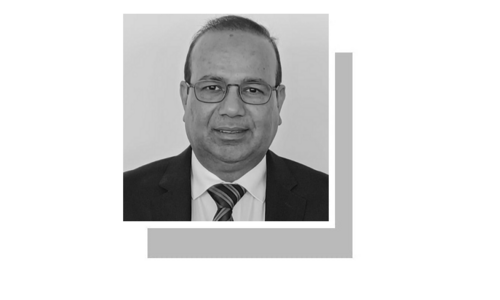PAKISTANI politics has been marred by the spectre of political engineering, a strategy employed to manipulate poll outcomes. This phenomenon is particularly prominent just before elections. Our political history unveils a short-sighted pattern of power dynamics being shifted to favour certain parties or individuals, at the cost of democratic principles.
Gen Ayub Khan is known to have first manipulated the polls in his electoral contest against Fatima Jinnah in 1965. Another instance dates back to 1977, when Zulfikar Ali Bhutto, allegedly attempted to get elected unopposed with the abduction of a rival candidate. Such tactics, including election day rigging to ensure a landslide, were responsible for the movement that led to his downfall.
The 1990s marked an escalation in political engineering. The year 1997 witnessed Nawaz Sharif’s ascent to power with a two-thirds majority, a victory tainted by allegations of state-sponsored manipulation. The PPP, a dominant force, was reduced to a mere 18 seats. These events raised serious questions about the integrity of the electoral process. Karachi’s political landscape during this period was dominated by the MQM, which stands accused of using intimidation to stifle opposition. Smaller towns weren’t immune either, with feudal lords resorting to ballot stuffing.
Over time, various methods were utilised by the state to influence electoral outcomes. These include gerrymandering, the use of state resources for campaigning, politically motivated accountability drives against certain leaders, and control over media narratives. These tactics not only skew electoral results but also undermine the essence of democracy. They also don’t stand the test of time. But that doesn’t stop the ‘puppeteers’ from trying. Now a new campaign seems to be under way — this time against the PTI.
Party members are facing obstacles in filing nomination papers, police raids are targeting their families, and there is an atmosphere of intimidation. Such actions suggest a deliberate effort to exclude a major political force, undermining the democratic process. This tactic has broader implications: it potentially alienates voters, leading to a lower turnout on polling day.
Further, if key parties are forced out of the contest, their members will resort to contesting as independents. Post-election, these independents could be coerced into joining other political parties, complicating the political tapestry.
The crux of the matter lies in the erosion of democratic norms. When poll processes are compromised, the legitimacy of the next government becomes questionable. As Pakistan navigates turbulent political waters, it must reflect on the long-term consequences of such manoeuvring. A collective effort is required to ensure fair, transparent, and credible elections, which are the cornerstone of any functioning democracy. Only through such measures can the faith of the populace in the democratic process be restored, paving the way for a more stable Pakistan.
Published in Dawn, December 24th, 2023















































Dear visitor, the comments section is undergoing an overhaul and will return soon.